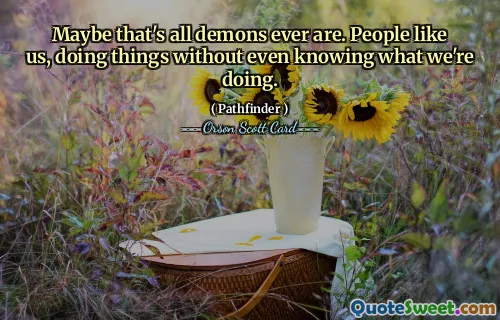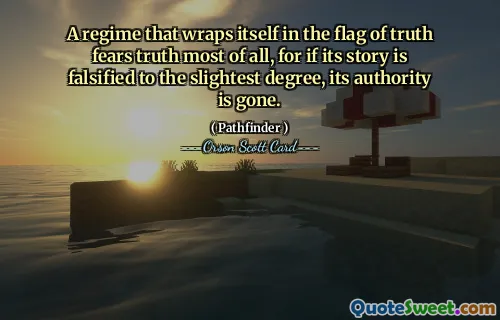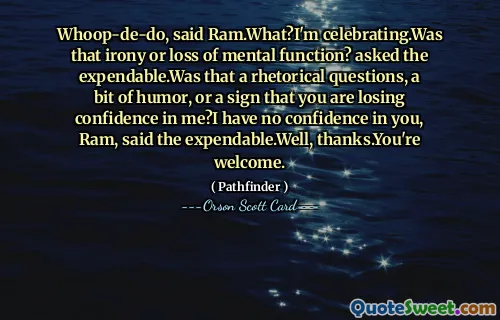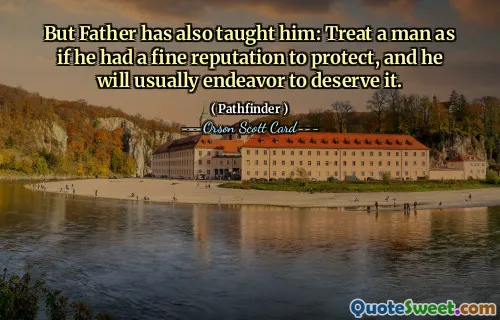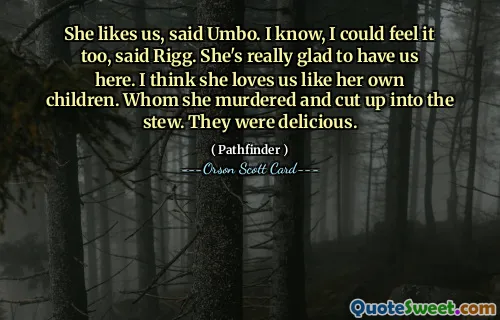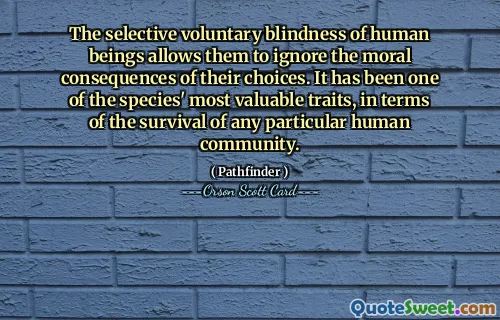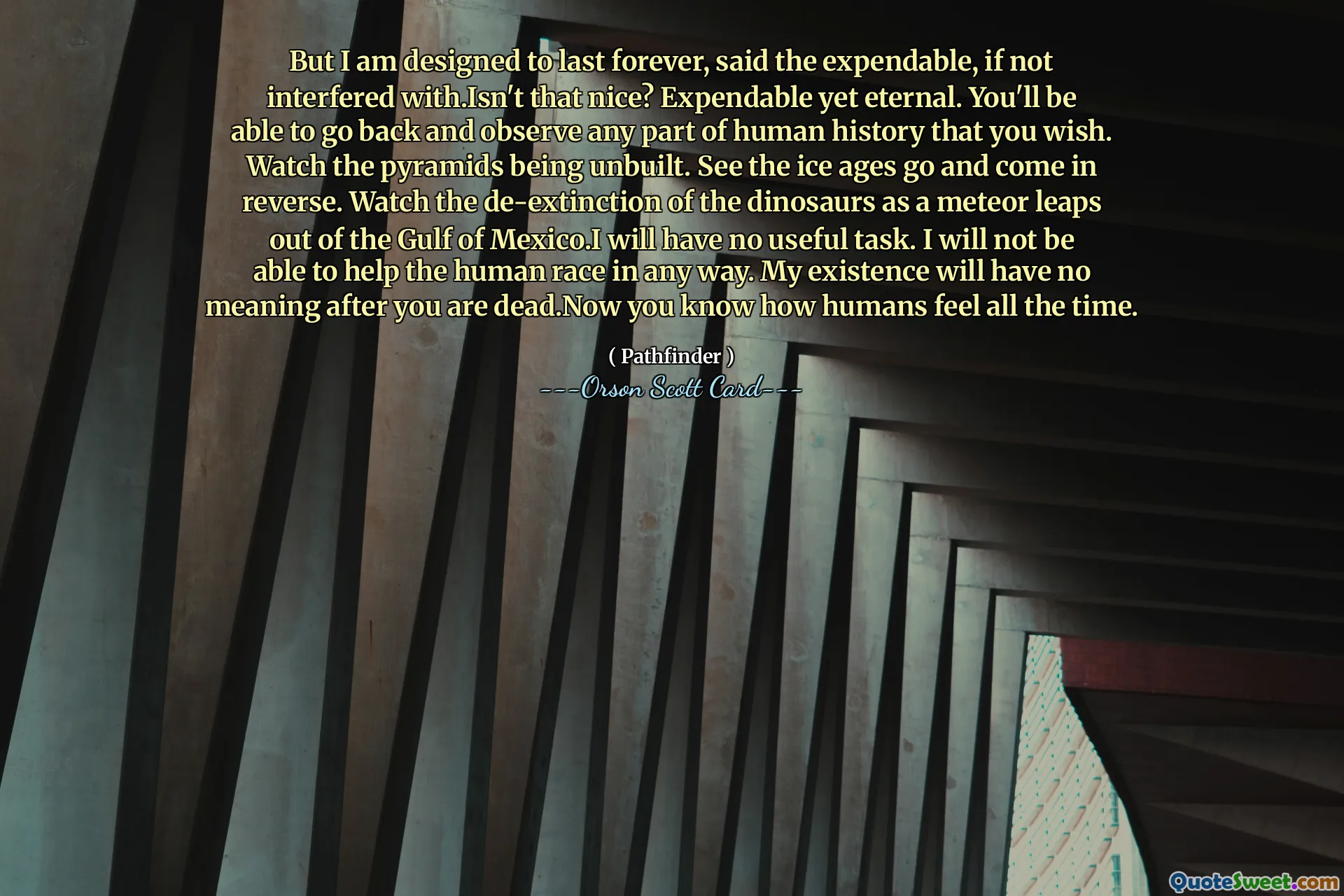
But I am designed to last forever, said the expendable, if not interfered with.Isn't that nice? Expendable yet eternal. You'll be able to go back and observe any part of human history that you wish. Watch the pyramids being unbuilt. See the ice ages go and come in reverse. Watch the de-extinction of the dinosaurs as a meteor leaps out of the Gulf of Mexico.I will have no useful task. I will not be able to help the human race in any way. My existence will have no meaning after you are dead.Now you know how humans feel all the time.
In the excerpt from "Pathfinder" by Orson Scott Card, an expendable being reflects on its existence, proclaiming that it is designed to be eternal, capable of witnessing the entirety of human history. This being can observe significant events, such as the construction and destruction of the pyramids, the changing ice ages, and even the return of dinosaurs, yet it acknowledges the emptiness of its purpose. Despite its ability to endure, it recognizes that it will have no meaningful role after its creator's death.
This introspection leads to a profound realization about the human experience. The expendable's sense of purposelessness mirrors how humans often grapple with the search for meaning in their lives. Just as the being contemplates its eternal existence without a significant task, it draws a parallel to the existential struggles faced by humans, prompting a reflection on the nature of life and the quest for meaning amidst inevitable mortality.
